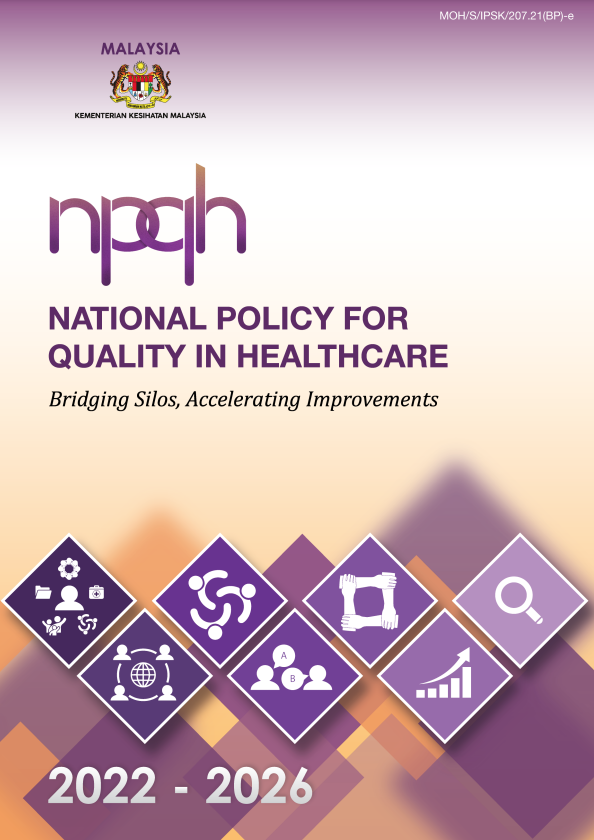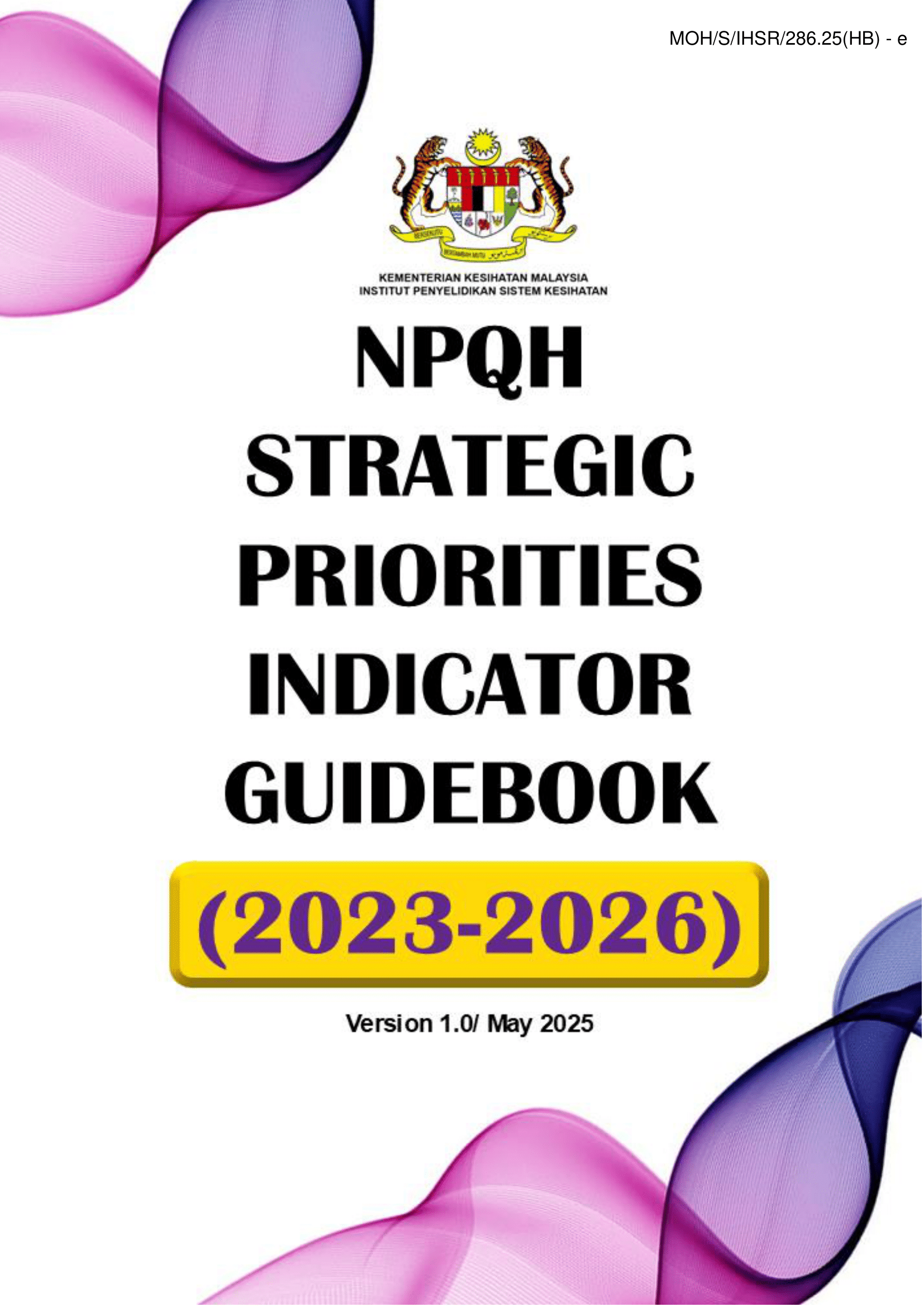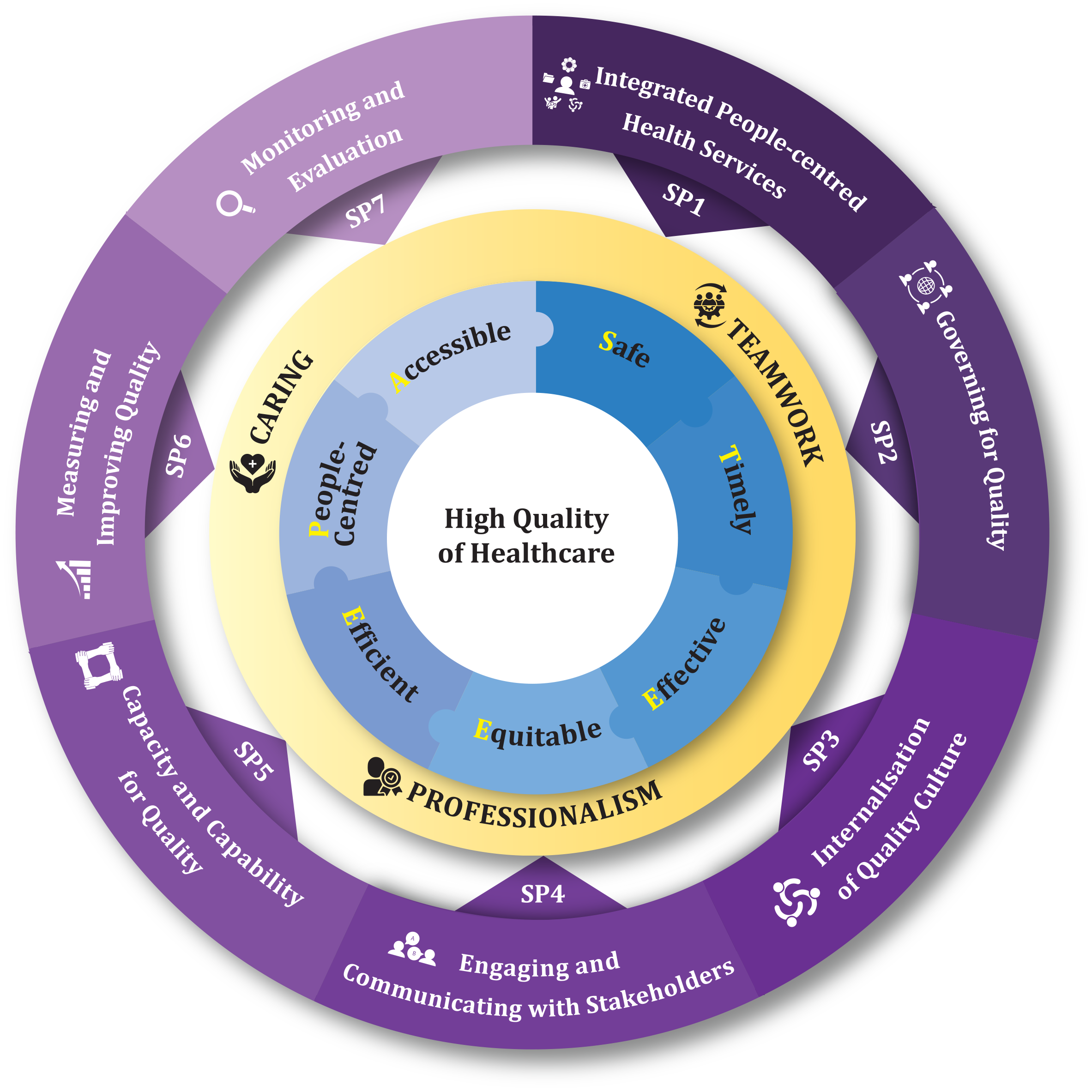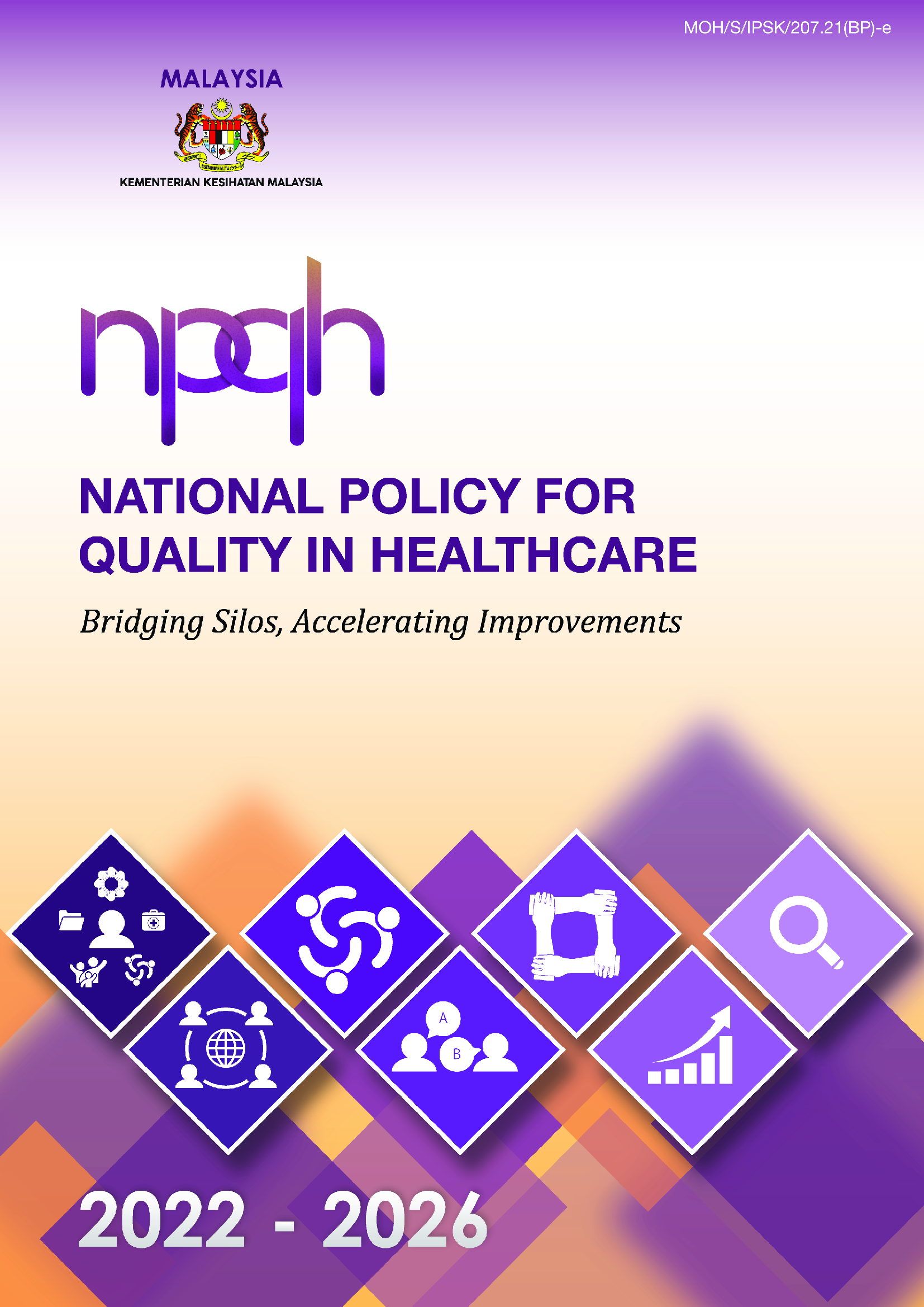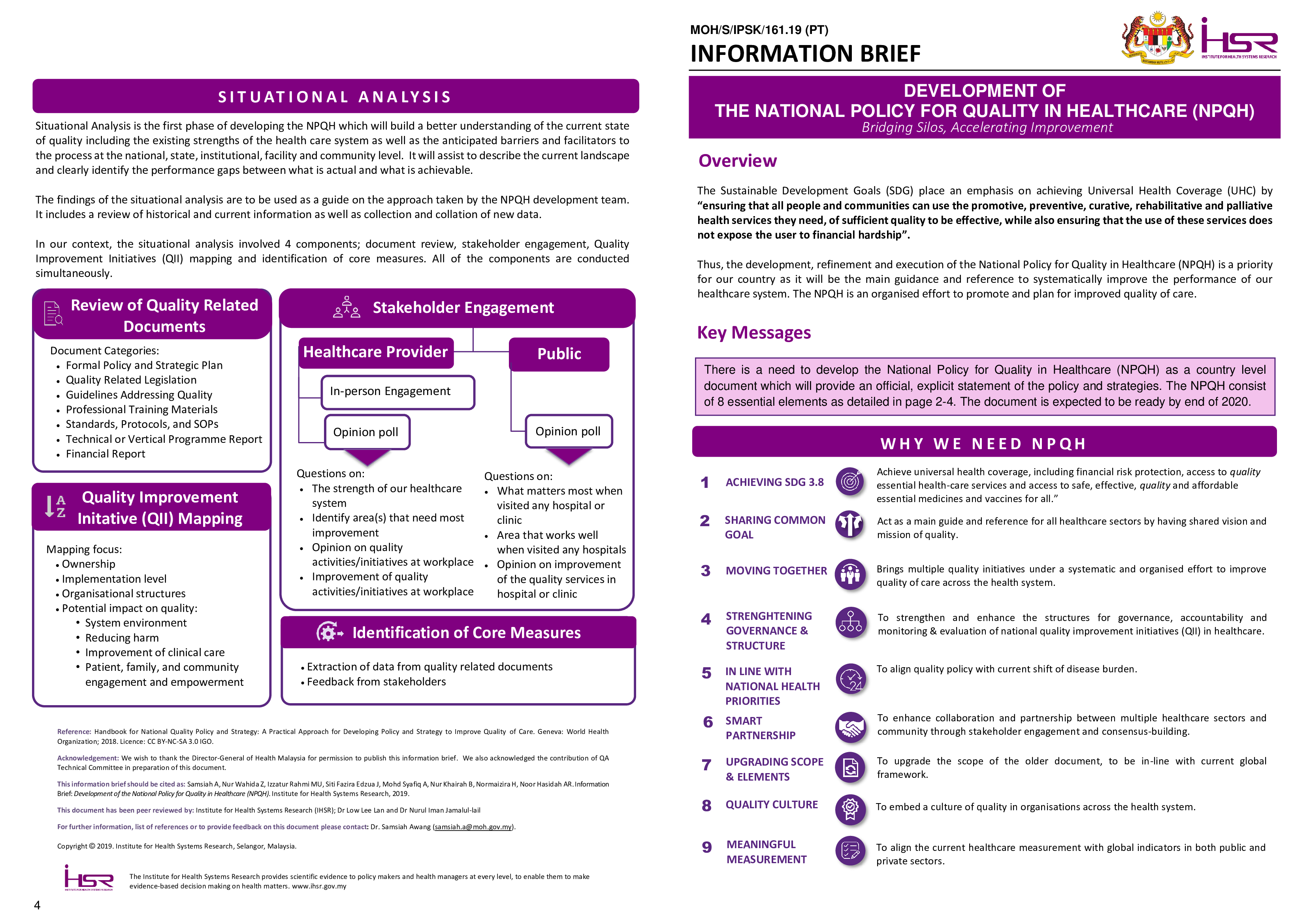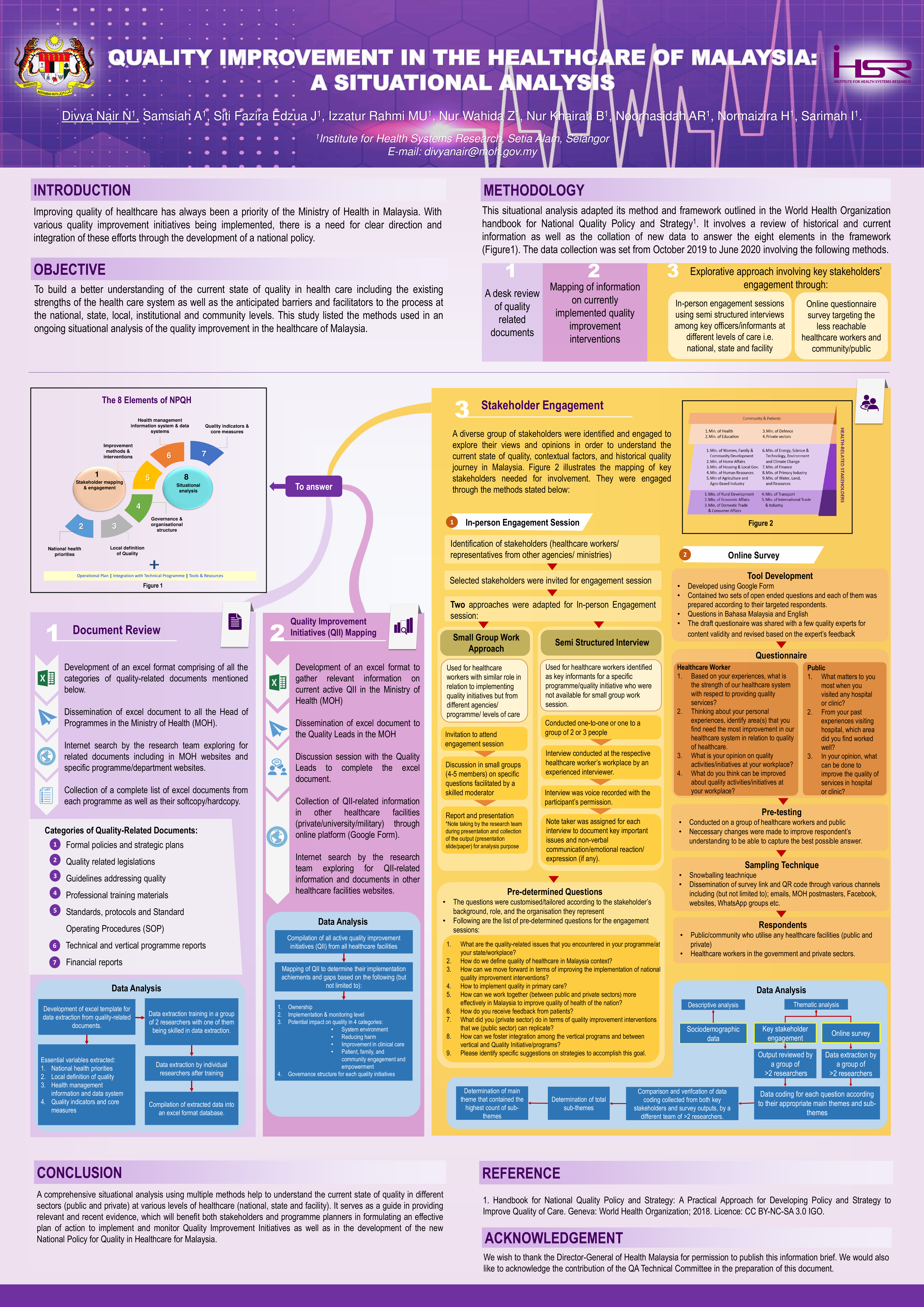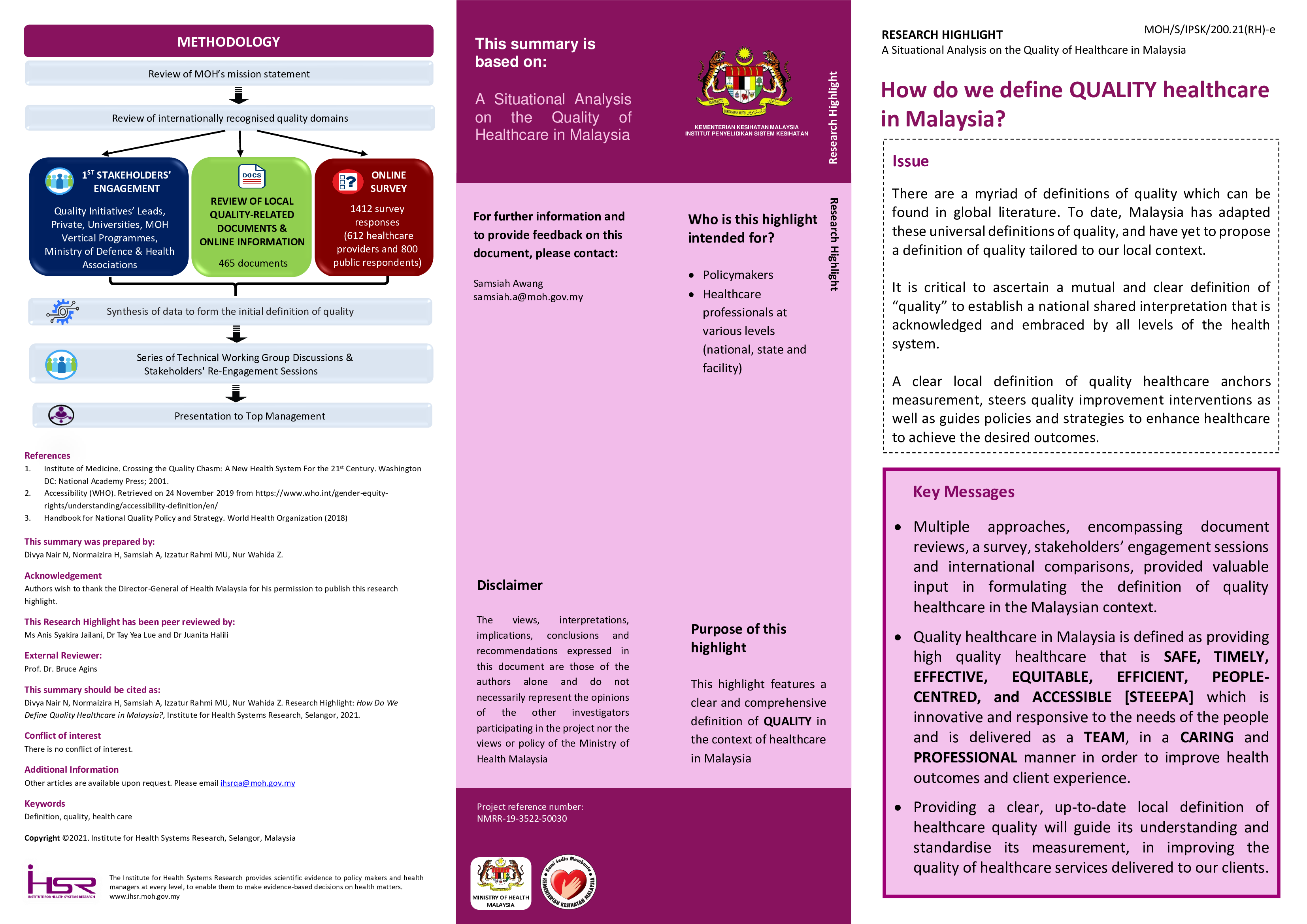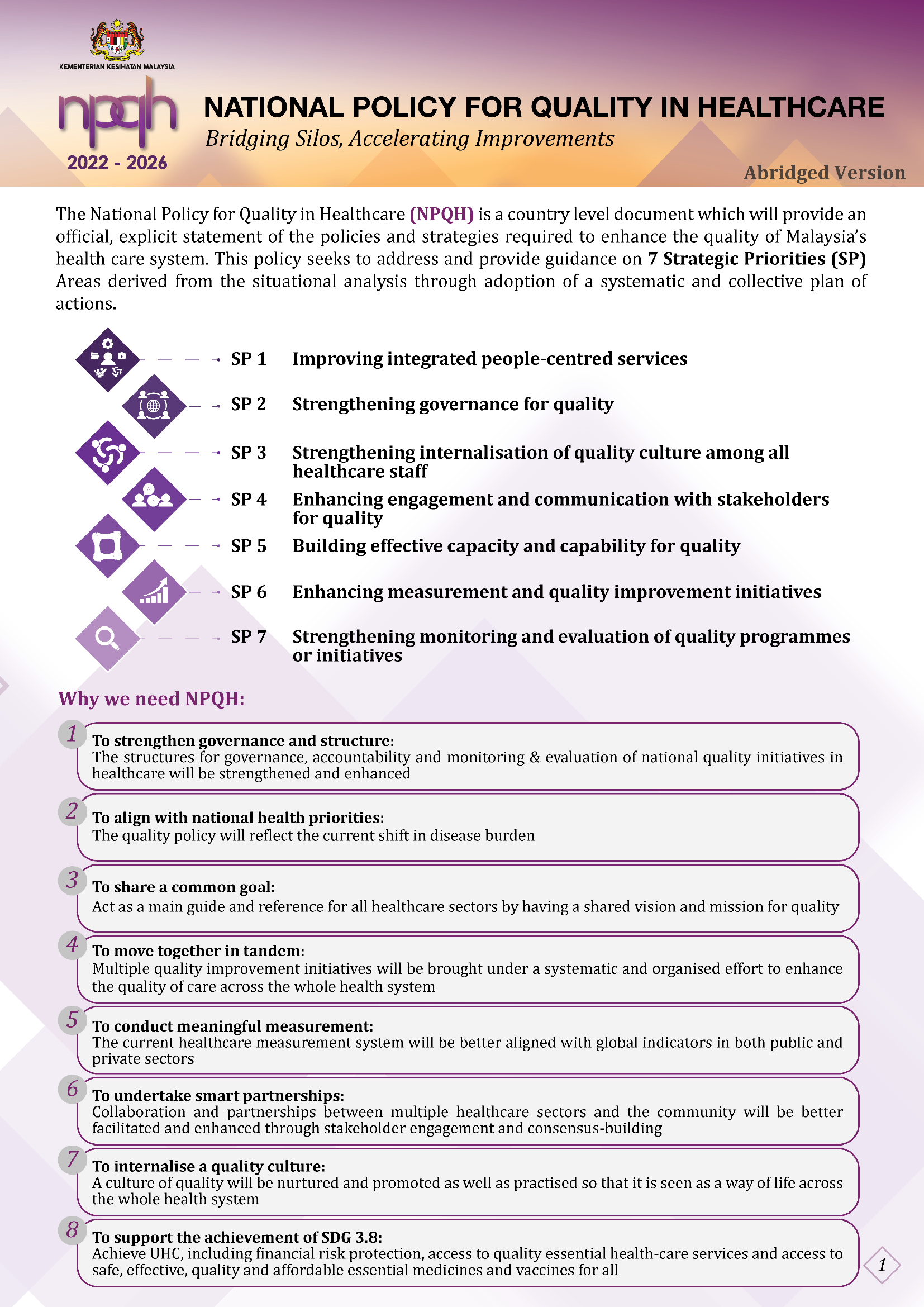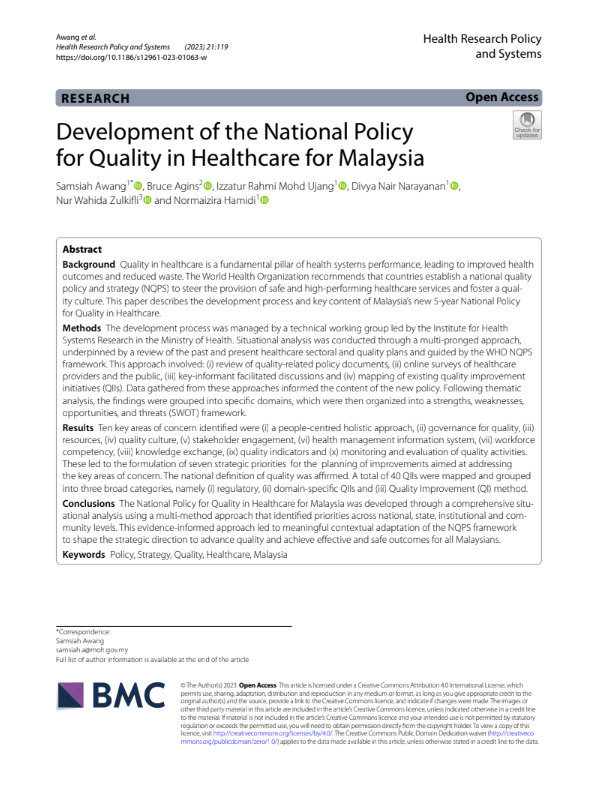National Policy for Quality in Healthcare (NPQH)
Overview
Launched on 5th of October 2021 by Tan Sri Dato' Seri Dr Nor Hisham Abdullah virtually in the Seminar for Quality in Healthcare, the National Policy for Quality in Healthcare (NPQH) for Malaysia – is formulated to guide both the public and private health sectors. It provides an official, explicit policy statement regarding the approach and actions required at all levels of health service delivery across Malaysia's health system aiming to systematically plan for enhancement of the quality of healthcare.
NPQH is built upon a comprehensive situational analysis of the state-of-quality of healthcare in Malaysia which applied mixed-methods approach, involving review of data and qualitative assessment of stakeholders. This policy is aligned with national health policy as well as quality related policies and strategies that exist in different areas.
With tagline Bridging the silos, Accelerating improvement, this policy seeks to address and provide guidance on the implementation of 7 Strategic Priority (SP) within 5 years (2022 - 2026). This can be achieved through strong team work and collaboration within the health sectors.
Our aim is to deliver high quality of care for the people that is SAFE, TIMELY, EFFECTIVE, EQUITABLE, EFFICIENT, PEOPLE-CENTRED and ACCESSIBLE (STEEEPA).
These technical quality domains are strongly supported by three core values as our culture of work; CARING, TEAMWORK and PROFESSIONALISM.
In order to achieve this goals, seven (7) Strategic Priorities areas identified will be strengthened and enhanced. For further reading on the indicators, refer to our NPQH Strategic Priorities Indicators Guidebook (2023 - 2026).
Overview
- SP1: Improving Integrated People-centred Services
- SP2: Strengthening Governance for Quality
- SP3: Strengthening Internalisation of Quality Culture among All Healthcare Staff
- SP4: Enhancing Communication and Engagement of Stakeholders for Quality
- SP5: Building Effective Capacity and Capability for Quality
- SP6: Enhancing Measurement and Quality Improvement Initiatives
- SP7: Strengthening Monitoring and Evaluation (M&E) of Quality Programmes and Initiatives
Improving Integrated People-centred Services
- Understanding current level of the organisation’s quality culture, readiness for change and performances
- Emphasis on employee wellness and welfare
- Develop, implement and strengthen an engagement plan between top management and healthcare providers
- Strengthen the reward, incentive and recognition system and mechanism
- Review and optimise the system for healthcare facility accreditation to meet quality of care objectives
Strengthening Governance for Quality
- Strengthening leadership commitment in quality through the monitoring of current organisations’ performances.
- Underline the importance of quality in the MOH at top level management
- Strengthening governance of the Quality Committee/ Department/ Session
- Improving resources for Quality
Strengthening Internalisation of Quality Culture among All Healthcare Staff
-
Understanding current level of the organisation’s quality culture, readiness for change and performances
-
Emphasis on employee wellness and welfare
-
Develop, implement and strengthen an engagement plan between top management and healthcare providers
-
Strengthen the reward, incentive and recognition system and mechanism
-
Review and optimise the system for healthcare facility accreditation to meet quality of care objectives
Enhancing Communication and Engagement of Stakeholders for Quality
-
Strengthen the interaction among programmes within the MOH
-
Strengthen the interaction among MOH programmes with other ministries, private sectors and the community
-
Foster knowledge sharing and knowledge translation platforms on quality improvement activities
Building Effective Capacity and Capability for Quality
- Strengthen in-service quality improvement training encompassing technical and soft skills
- Assessment of the training provided
Enhancing Measurement and Quality Improvement Initiatives
- Reviewing and strengthening the measurement and indicator framework
- Improving data quality
- Managing data and linking data sources – strengthening MyHDW.
- Using data for decision making
Strengthening Monitoring and Evaluation (M&E) of Quality Programmes and Initiatives
- Organising / conducting QII evaluations
- Dissemination and communication of evaluation results to close the loop

